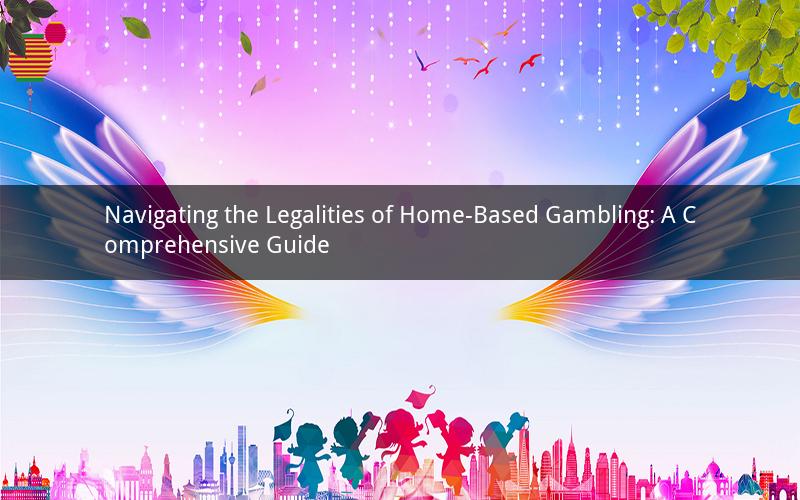
Home-based gambling has become increasingly popular, as people seek entertainment and potentially lucrative opportunities within the comfort of their own homes. However, the legality of engaging in gambling activities at home is a topic that raises many questions. In this article, we will explore the laws surrounding home-based gambling, providing insights into what is considered legal and what may constitute illegal activity. Additionally, we will discuss the potential risks and consequences associated with engaging in home-based gambling.
Legalities of Home-Based Gambling
1. Differentiating between Social Gambling and Illegal Gambling
One of the primary considerations when determining whether home-based gambling is legal is the distinction between social gambling and illegal gambling. Social gambling typically involves friends or family members playing games of skill or chance for small stakes or no stakes at all. In many jurisdictions, social gambling is permitted as long as it does not involve organized crime or the use of professional gamblers.
On the other hand, illegal gambling involves organized gambling operations, professional gamblers, or the use of gambling devices that are not permitted by law. This includes activities such as betting on sports events, running an online casino, or participating in poker tournaments with substantial prizes.
2. State and Local Laws
The legality of home-based gambling varies significantly depending on the jurisdiction. While some states and localities have explicitly allowed home-based gambling, others have not. It is crucial to research the specific laws and regulations in your area to determine whether home-based gambling is legal.
For example, in the United States, certain states, such as Nevada, New Jersey, and Delaware, have legalized and regulated online gambling. In these states, residents can legally engage in home-based gambling through licensed online casinos and sports betting platforms. However, in other states, such as California and Texas, home-based gambling is generally illegal unless it is conducted under specific circumstances, such as social gambling among friends.
3. Online Gambling and the Federal Wire Act
The Federal Wire Act of 1961 prohibits the use of wire communication to engage in certain forms of gambling. However, the Act's applicability to online gambling has been a subject of debate. While the Act does not explicitly mention online gambling, it has been interpreted by some to apply to online sports betting and other forms of gambling.
As a result, online gambling is legal in some states, such as Nevada, New Jersey, and Delaware, where it has been explicitly authorized by state legislation. In other states, online gambling remains illegal, and residents may face legal consequences for participating in online gambling activities.
4. Risks and Consequences of Illegal Home-Based Gambling
Engaging in illegal home-based gambling can have serious consequences, including fines, imprisonment, and the potential loss of personal or professional reputation. Additionally, individuals who engage in illegal gambling may be targeted by organized crime, which can pose further risks to their safety.
It is essential to understand the potential risks and consequences associated with illegal home-based gambling before participating in such activities. By adhering to the laws and regulations in your jurisdiction, you can ensure that your gambling activities remain legal and safe.
Frequently Asked Questions
1. Is it legal to play poker with friends in my home?
Answer: The legality of playing poker with friends in your home depends on the specific laws and regulations in your jurisdiction. In many places, as long as the stakes are small and there is no organized crime involved, social poker is considered legal. However, it is crucial to check your local laws to ensure compliance.
2. Can I host a poker tournament with substantial prizes in my home?
Answer: Hosting a poker tournament with substantial prizes in your home may be illegal in some jurisdictions. The key factor is whether the tournament is considered an organized gambling operation. If the stakes are high or if professional gamblers are involved, the activity may be deemed illegal. Always consult your local laws before hosting such an event.
3. Is it legal to play online poker from my home?
Answer: The legality of online poker from your home varies by state. In states where online gambling is legal and regulated, such as Nevada, New Jersey, and Delaware, residents can legally play online poker. However, in states where online gambling is illegal, participating in online poker may lead to legal consequences.
4. Can I use a gambling app on my smartphone at home?
Answer: The legality of using a gambling app on your smartphone at home depends on the nature of the app and the laws in your jurisdiction. If the app is legal in your state and complies with state regulations, then using it at home is legal. However, if the app is associated with illegal gambling activities, using it may be illegal.
5. What should I do if I am unsure about the legality of home-based gambling in my area?
Answer: If you are unsure about the legality of home-based gambling in your area, it is best to consult with a legal professional who can provide guidance based on your specific circumstances. They can help you understand the laws and regulations in your jurisdiction and ensure that your gambling activities remain legal and compliant.
By understanding the legalities of home-based gambling and adhering to the laws and regulations in your jurisdiction, you can enjoy the entertainment and potential financial benefits of gambling while minimizing the risks and consequences associated with illegal activities.